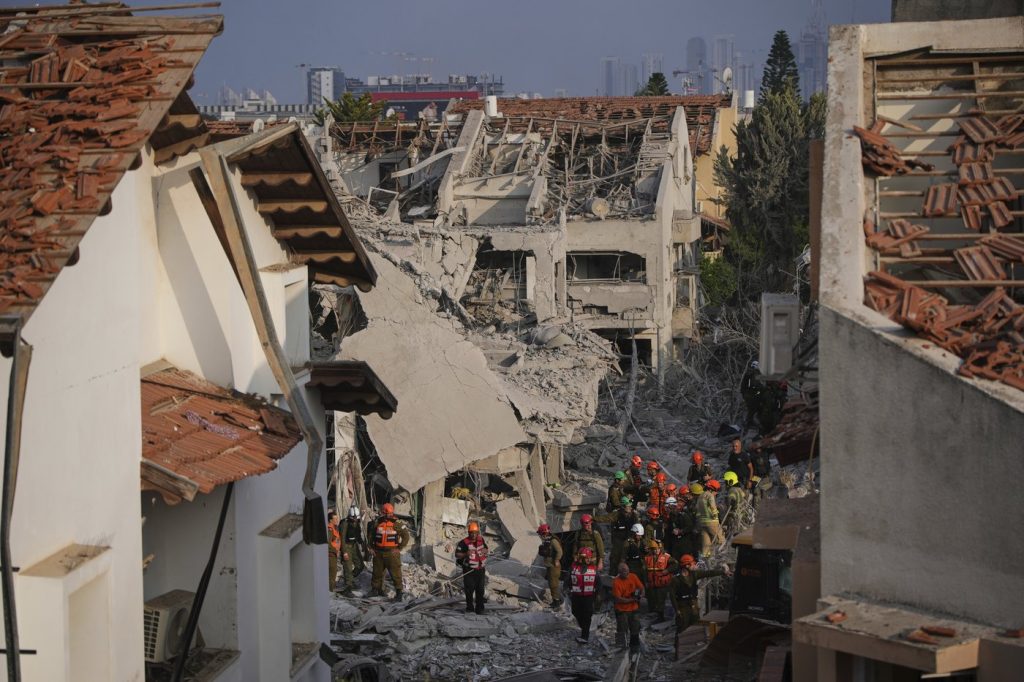DUBAI, United Arab Emirates (AP) — Jordan is set to reopen its airspace to civilian aircraft on Saturday morning at 7:30 a.m. local time, as reported by state-run media. This decision indicates that the Mideast kingdom believes there is no immediate danger of further attacks following recent escalations in the region.
Previously, Jordan's airspace was a battleground, with Iranian drones and missiles crossing through it, while Israeli fighter jets engaged potential threats in the area. The ongoing conflict between Israel and Iran had significantly disrupted East-West air travel through the Middle East, an essential global aviation route.
In a parallel escalation, Iran launched retaliatory missile strikes on Israel into Saturday morning, resulting in at least three fatalities and numerous injuries. This followed intense Israeli airstrikes targeting Iran's nuclear program and military leadership. Israeli forces employed warplanes and drones in this assault, aiming to eliminate key figures in Iran's military and nuclear infrastructure.
Despite Israel's claims that their actions were necessary to prevent Iran from advancing toward constructing an atomic weapon, both analysts and U.S. officials suggested that Iran was not actively pursuing such a weapon before the strikes. These developments have further complicated U.S.-Iran negotiations over nuclear accords, which were on the verge of a new round of discussions.
In response to the Israeli attacks, Iran retaliated with drone and missile strikes directed at various Israeli locations, including Jerusalem and Tel Aviv, where explosions illuminated the night sky. The Israeli military advised civilians to seek shelter due to the unfolding situation, exacerbated by the ongoing Israel-Hamas war in Gaza.
Ayatollah Ali Khamenei, Iran's Supreme Leader, stated that the country would not allow Israel to evade consequence for their actions. Official reports from Iran claimed that 78 people were already killed and over 320 injured due to the Israeli assaults, leading to a significant escalation in hostilities.
A hospital in Tel Aviv reported treating several individuals injured during the missile strikes, while another attack in the central city of Rishon Lezion resulted in two deaths and numerous injuries. Local authorities reported extensive damage to several residences in the affected areas.
As Iranian air defense systems engaged targets, explosions could be heard dramatically altering the atmosphere in central Tehran. Reports from Iran's Tasnim news agency indicated a fire broke out at Tehran's Mehrabad International Airport, contributing to the ongoing tension.
The heightened military operations have raised concerns about the potential for an all-out war between Israel and Iran, with regional and global calls for de-escalation growing louder. International leaders denounced Israel's aggression while mediating efforts were attempted to navigate the emerging crisis.
Israel’s military operations involved around 200 aircraft targeting approximately 100 locations, with the Mossad conducting undercover operations to facilitate strikes on Iranian defenses. High-ranking Iranian officials, including military leaders overseeing critical operations, were reported as casualties in the strikes, signaling a significant blow to Iran's military structure.
Israeli Prime Minister Benjamin Netanyahu disclosed that this military campaign had been in preparation for months, with key planning taking place following the killing of Hassan Nasrallah of Hezbollah. Despite the potential consequences, Israel proceeded with their planned assaults, claiming preemptive action was necessary.
As the situation continues to unfold, both nations appear poised for further hostilities, with Israel's military preparing for an extended operation, while Iran signals readiness to respond. The geopolitical ramifications of these events may reshape the conflict landscape in the Middle East and affect international relations moving forward.











